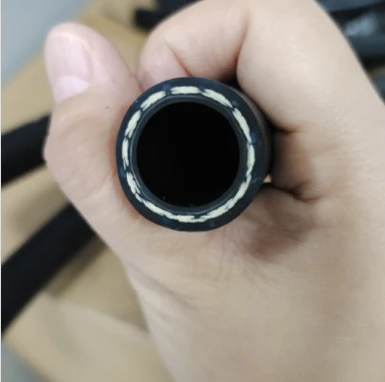Fuel Line Tubing Solutions for Efficient Automotive Performance and Maintenance
1-р сар . 01, 2025 03:51 Back to list
Fuel Line Tubing Solutions for Efficient Automotive Performance and Maintenance
The Importance of Fuel Hose Pipes in Automotive Systems
Fuel hose pipes are essential components in automotive engineering, playing a critical role in the transportation of fuel from the tank to the engine. These flexible tubes facilitate the safe and efficient delivery of various types of fuels, ensuring that vehicles operate smoothly. This article will delve into the various aspects of fuel hose pipes, including their construction, functionality, and the importance of maintenance.
Fuel hose pipes are made from a range of materials designed to withstand the harsh conditions associated with automotive fuel systems. Common materials include rubber, thermoplastic, and reinforced rubberized fabric. Each of these materials offers unique properties such as flexibility, heat resistance, and chemical compatibility, which are critical for handling the corrosive nature of fuels. Additionally, these hoses are often reinforced with materials like steel or nylon to enhance durability and prevent collapse under vacuum conditions.
One of the primary functions of fuel hose pipes is to transport fuel under varying pressure levels. Fuel systems in modern vehicles often operate under sophisticated engineering principles that involve fuel injection and delivery. A well-designed fuel hose can maintain these pressures seamlessly, preventing leaks and ensuring that fuel reaches the engine in an optimal state. Improperly functioning fuel hoses can lead to significant performance issues, including engine misfires, poor fuel efficiency, and eventually, complete engine failure.
In addition to their primary function, fuel hose pipes also play a role in safety. Leaking fuel can pose a fire hazard, which makes the integrity of these hoses crucial. Over time, hoses can deteriorate due to exposure to heat, fuel, and environmental factors. Regular inspection and maintenance of fuel hoses are essential practices to avoid leaks. Mechanics typically check for signs of wear, such as cracks, swelling, or brittleness, and replace hoses that show any signs of degradation.
fuel hose pipe

To reinforce the importance of these components, consider the ramifications of neglecting fuel hose maintenance. A cracked or worn fuel hose can lead to fuel spills, which not only waste fuel but also create hazardous conditions. Such situations can lead to accidents, fires, and costly repairs. In some jurisdictions, manufacturers are even mandated by law to design vehicles with accessible fuel systems to facilitate maintenance and safety checks, indicating a broader recognition of the importance of fuel hose integrity.
However, it’s not just mechanical failure that concerns vehicle owners. Environmental considerations have also become more prominent in recent years. Fuel hose pipes that are not manufactured to current standards may contribute to evaporative emissions, harming air quality. The automotive industry has made strides in developing low-emission technologies, and ensuring that fuel hose pipes meet these standards is a part of that effort. Using hoses constructed from environmentally friendly materials can minimize the ecological footprint of a vehicle while still maintaining performance.
As we move toward a future with diversified fuel sources—including electric and hydrogen vehicles—the importance of traditional fuel hose pipes may evolve. However, for the foreseeable future, gasoline and diesel engines will remain prevalent, meaning the demand for reliable, high-quality fuel hose pipes will continue. Manufacturers are expected to innovate further, focusing on developing hoses that not only meet high performance and safety standards but also contribute to sustainability efforts.
In conclusion, fuel hose pipes are integral to the functionality and safety of automotive fuel systems. Their proper selection, installation, and maintenance are crucial to ensuring that vehicles operate efficiently and safely. As automotive technology evolves, so too will the design and materials used for fuel hoses. Nonetheless, their importance remains unchanged ensuring that our vehicles run reliably and safely while minimizing environmental impacts. Vehicle owners and manufacturers alike must recognize the role of these components to ensure optimal performance and safety in the ever-evolving landscape of automotive engineering.
Latest news
-
Automotive Fuel Line & Hose Solutions | E85 & Diesel Ready
NewsAug.26,2025
-
Reliable Automotive Fuel Line | E85 & Diesel Compatible
NewsAug.25,2025
-
Durable Car Heater Hose | Quality Automotive Preheater Pipes
NewsAug.24,2025
-
Durable Air Brake Hose & Air Lines for Trucks | Safety Ensured
NewsAug.23,2025
-
Air Conditioning Charging Hose: Durable AC Recharge Kits
NewsAug.22,2025
-
Premium 4890 AC Hose | Durable & Perfect Fit Replacement
NewsAug.21,2025
